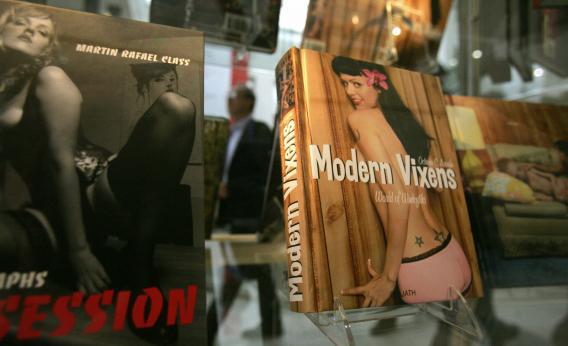Over at the Atlantic, Jessica Luther argues persuasively that romance novels have outgrown their regressive past to become an outright feminist genre. Whereas heroines were once nonconsensually divested of their innocence by cruel rakes who would eventually be transfigured into husbands, now oral sex and female pleasure are the order of the day. And rather than confining their concerns to the marriage mart and the honor of their families, women in modern romance novels want fulfilling relationships that complement their professional lives.
Luther argues that romance novels have profited from the feminist movement:
Dr. Jackie C. Horne, a writer, independent scholar, and author of the site Romance Novels for Feminists, says that the women who now write romance novels grew up enjoying the benefits of the feminist movement. These authors, Horne says, “take feminist ideas that were once novel, provocative, on the very edge of inconceivable for granted, as givens.” In Alice Clayton’s Wallbanger and Lauren Dane’s Lush, both heroines are adamant that their careers not suffer in order to make a relationship work. They negotiate long-term committed relationships with men who treat them as equals. And, as is par for the course in most romance novels, these women seek out sexual pleasure and they enjoy sex. These are not the romances of the 1970s.
But it’s not just the gender roles for female characters that have gotten a makeover. In Julia Quinn’s Regency romances, the rakes who a generation ago would have been plowing their way through our outraged heroines may not want to be cruel, or sexually rapacious, or careless with young women’s reputations. They care about family and wish to be present in their own children’s lives, often because their fathers were absent, abusive, or overly obsessed with class and social status. And they regularly set out to marry women who are beautiful and pliant, only to find themselves drawn to unconventional women who are themselves at odds with societal norms.
Whether this is an accurate representation of the sentiments of English nobility in the early 1800s is beside the point. Books like Quinn’s are shaking up romantic ideals, changing both what women expect and what men are expected to be. And while romance novels frequently follow the triumphs of women who once saw themselves as unfeminine and therefore unlovable, Jennifer Crusie’s Bet Me also explores how exhausting masculine gender roles can be for male characters. In that novel, the main character, Calvin Morrissey, finds himself railroaded into a bet that he can seduce Minerva Dobbs, the female lead, in part because of his reputation as a womanizer. Pressure to live up to his (bad) name causes Calvin as much misery as Minerva.
It’s a terrific development that romance novels, unlike romantic comedies, are suggesting that readers stop lusting over obnoxious jerks. But it would be nice to find a way to get those messages out beyond the pages of romance novels, with their overwhelmingly female readership, to a place where men might hear them, too.
